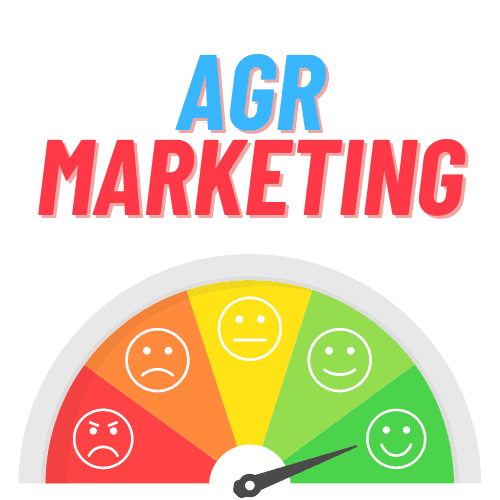Which Of The Following Best Describes Marketing? (2023)
Demystifying Marketing: Everything You Need to Know
Marketing activities, baby! It’s all about selling your brand through promotions, making people go “Wow!” and introducing your products to potential customers.
Do you know what I’m talking about? It’s promoting products or services to grab attention and create awareness. And let me tell you; it’s a big deal!

Why? Well, marketing helps businesses connect with their target audience and build those sweet customer relationships. It’s like building a bridge between a company and its customers.
When done right, promotions drive sales through the roof and bring in that sweet revenue. The introduction of a product is critical to selling it effectively.
So, if you’re wondering which of the following best describes marketing…it’s all about promotions, spreading the word, and selling the product. Trust me, without marketing activities; businesses would be lost at sea.
Now let’s dive into this wild world of product marketing, promotion, selling, and company together!
Importance of Marketing in Business Growth
- Marketing promotion is crucial for company growth as it attracts new customers to the product. The right marketing strategy can effectively showcase the product and its benefits, enticing customers to purchase. Additionally, a well-executed marketing campaign can help create brand awareness and increase visibility in the market.
- By effectively promoting the product, a company can also influence the perceived value and justify businesses can showcase their offerings to a broader audience through the product. Overall, marketing plays a vital role in driving sales and ensuring a company’s success by offering a unique product at a competitive price.
- Successful marketing campaigns increase a company’s brand recognition, loyalty, and profitability. These campaigns focus on promoting the right product, targeting the right audience at the right price, and utilizing the four Ps of marketing.
Marketing plays a vital role in driving business growth. Companies can effectively reach potential customers and expand their customer base by promoting products or services. Here are some key reasons why marketing is essential for business success. Marketing helps companies increase their visibility and attract more customers, leading to higher sales Companies can encourage repeat purchases and foster loyalty and revenue.

It also allows companies to differentiate themselves from competitors and establish a vital brand’s needs and preferences, enabling them to develop products or services that meet those demands.
Ultimately, marketing helps companies achieve their goals and objectives by creating awareness, generating interest, and influencing purchase decisions.
Attracting Customers
Marketing efforts are instrumental in attracting new customers to a company. Businesses can showcase their offerings to a broader audience through advertising, social media campaigns, and content marketing.
By highlighting the unique features or benefits of their products or services, companies can pique the interest of potential customers and compel them to make a purchase Marketing initiatives generate increased sales and revenue.
Differentiation from Competitors
In a competitive market, they stand out from companies to differentiate themselves from competitors by emphasizing their unique selling points.
Through compelling messaging, innovative branding techniques, or superior customer service, marketing helps create a distinct identity that sets a product apart.
Expanding Customer Base and Market Share
Marketing efforts attract new customers and help businesses expand their customer base. By consistently reaching out to existing customers and nurturing relationships through targeted marketing campaigns, companies can encourage repeat purchases and foster loyalty to their products.
Moreover, successful marketing initiatives can also contribute to gaining market share by capturing the attention of potential customers who may have been previously unaware of the company’s offerings.
Increased Brand Recognition, Loyalty, and Profitability
A well-executed marketing strategy leads to brand recognition among consumers. When people recognize and trust a brand due to practical marketing efforts, they are likelier to choose that company over others when purchasing.
This enhanced brand reputation fosters customer loyalty and advocacy for the product.
Successful marketing campaigns often result in improved profitability for companies. By attracting new customers, expanding the customer base, and fostering loyalty, marketing initiatives generate increased sales and revenue for the company’s product.
Different Types of Marketing Strategies
Companies can employ various marketing strategies to promote their products and reach their target audience. Let’s explore some standard techniques that businesses can use.
- Digital marketing: This strategy leverages digital channels such as websites, search engines, social media, and online advertising to connect with customers.
- Content marketing: By creating valuable and relevant content, businesses can attract and engage their target audience while building brand awareness and credibility.
- Social media marketing: Social media platforms allow businesses to interact directly with customers, promote products or services, and build a loyal following.
- Email marketing: Sending targeted emails allows businesses to nurture leads, communicate with customers, and drive sales by delivering personalized messages directly to inboxes.
- Influencer marketing: Collaborating with influencers with a large following in a specific niche enables businesses to tap into their influence and reach potential customers effectively.
Each product strategy has its unique approach to reaching customers and achieving specific objectives. Companies must consider budget, industry trends, and customer preferences when choosing the right mix of strategies.
A well-planned combination can maximize the impact of marketing efforts on the company’s product.
By utilizing these different strategies effectively, businesses can expand their reach, increase brand visibility, generate leads, drive sales conversions, and ultimately achieve success in today’s competitive market.
So whether through digital marketing, content creation, or influencer partnerships – finding the right mix of strategies is crucial for any company looking to thrive in the modern landscape and promote their product.
Traditional Marketing Strategies
Traditional marketing strategies, also known as conventional methods, were widely used before the rise of digital platforms. These strategies encompassed various approaches to advertising and promotions, targeting a broad range of industries and demographics.
The product and company were the main focus of these strategies.
Examples of traditional marketing strategies include:
- Print advertisements in newspapers, magazines, and brochures.
- TV commercials that aired during popular shows and events.
- Radio spots that reached audiences through their favorite stations.
- Billboards strategically placed in high-traffic areas for maximum visibility are highly effective advertising products.
- Direct mailers are sent to specific addresses to promote products or services.
While these traditional marketing strategies still hold value in specific industries or among demographics with a preference for traditional media consumption, they may have limitations compared to newer digital marketing approaches.
Digital marketing has revolutionized how businesses reach their target audience by offering more precise targeting capabilities and improved measurement metrics for their product.
In contrast to traditional marketing strategies, digital marketing allows businesses to target specific groups based on their interests, demographics, online behavior, location, and product. This level of precision enables marketers to tailor their messages directly to the intended audience, maximizing the effectiveness of their product campaigns.
Furthermore, digital marketing provides an array of tools and platforms that allow businesses to track the performance of their product advertisements in real time.
Marketers can analyze click-through rates, conversions, engagement levels, and return on investment (ROI) for their product. This data-driven approach empowers businesses to optimize their product marketing efforts continuously.
New Age Marketing Strategies
New-age marketing strategies have revolutionized the way businesses reach their target audience. These product-focused strategies effectively connect with consumers in today’s fast-paced world by leveraging digital channels.
These innovative techniques encompass a variety of approaches to maximize outreach and engagement for the product. Some critical components of the product include
- Search Engine Optimization (SEO): Optimizing website content and structure to improve visibility on search engine results pages.
- Social Media Advertising: Utilizing platforms like Facebook, Instagram, and Twitter to promote products or services directly to users.
- Content Creation for Online Platforms: Developing engaging and informative content tailored for websites, blogs, and social media channels.
- Influencer Collaborations: Partnering with influential individuals in specific niches to endorse products or services.
- Mobile App Advertising: Targeting consumers through mobile applications with relevant ads.
The beauty of new-age marketing strategies lies in their ability to offer greater flexibility in targeting specific audiences. Marketers can now pinpoint demographics, interests, or behaviors when reaching potential customers.
This precision allows for personalized messaging that resonates with individual needs and preferences.
Moreover, these strategies provide measurable results that surpass traditional methods. With the help of analytics tools, marketers can track key performance indicators such as website traffic, click-through rates, conversion rates, and customer engagement levels.
This data-driven approach enables businesses to make informed decisions and optimize their marketing efforts continuously.
Exploring Various Types of Marketing
Marketing is a diverse field that encompasses various activities and strategies. Let’s take a closer look at some of the different types of marketing and how they contribute to overall business success.
- Product Marketing: This type of marketing focuses on promoting and selling specific products to consumers. It involves understanding customer needs, positioning the product in the market, determining pricing strategies, and creating compelling messages to attract buyers.
- Service Marketing: Service-based businesses use service marketing to promote intangible offerings such as consulting, healthcare, or financial services. This type of marketing emphasizes building relationships with customers, showcasing expertise, and highlighting the unique value provided through exceptional service delivery.
- Event Marketing: Event marketing revolves around creating memorable experiences for consumers through events such as trade shows, conferences, or product launches. It aims to generate buzz, increase brand awareness, and drive customer engagement by providing interactive platforms for interaction.
- Experiential Marketing: Experiential marketing takes a hands-on approach by immersing customers in memorable brand experiences. It often involves interactive installations or pop-up activations that allow consumers to engage with products or services firsthand.
- Relationship Marketing: Relationship marketing builds long-term customer connections by delivering personalized experiences and maintaining ongoing communication. It aims to foster loyalty and repeat business through targeted campaigns tailored to individual preferences.
- Cause-related Marketing: Cause-related marketing involves aligning a brand with social or environmental causes that resonate with its target audience. By supporting charitable initiatives or sustainability efforts, companies can enhance their reputation while positively impacting society.
Understanding these various types of marketing empowers businesses to develop effective campaigns tailored to their specific objectives. Whether promoting a product or delivering exceptional service experiences.
Organizing engaging events, creating immersive brand interactions, nurturing customer relationships, or supporting meaningful causes – each type is vital in driving success in the dynamic marketing world.
Critical Elements of Successful Marketing Campaigns
Successful marketing campaigns have several common elements that contribute to their effectiveness. These include:

- Clear goals and objectives: Every successful marketing campaign starts with clearly understanding its purpose. Whether it’s increasing brand awareness, driving sales, or generating leads, setting specific goals helps businesses stay focused and measure their success.
- Thorough market research: Before launching a campaign, businesses need to gather insights about their target audience, competitors, and industry trends. Marketers can identify customer needs and preferences by conducting thorough market research, allowing them to tailor their messaging accordingly.
- Targeted messaging: Effective marketing campaigns deliver the right message to people at the right time. Marketers can create compelling content that resonates with customers and drives action by understanding their target audience’s pain points and motivations.
- Compelling creative content: Engaging visuals, persuasive copywriting, and captivating storytelling are essential to successful marketing campaigns. Businesses must create content that grabs attention, sparks interest, and effectively communicates the value proposition.
- Strategic distribution channels: Choosing the proper channels to reach the target audience is crucial for campaign success. Whether through social media platforms, email marketing, search engine advertising, or traditional media outlets like TV or radio ads, businesses should select channels that align with their audience’s preferences and behaviors.
- Continuous monitoring and analysis of campaign performance: To ensure ongoing success, marketers must monitor critical metrics throughout the campaign’s lifecycle. Analyzing data allows businesses to optimize strategies in real time based on what works best for achieving desired outcomes.
- Integration across various platforms: Successful marketing campaigns leverage multiple platforms cohesively to maximize reach and impact. By integrating efforts across digital channels such as websites, social media profiles, blogs, or offline mediums like print ads or events, businesses can maintain consistency in brand messaging while reaching a wider audience.
- Consistency in brand messaging: Maintaining a consistent brand voice and identity across all marketing touchpoints is vital. It helps build trust, reinforces brand recognition, and ensures customers have a unified experience.
By incorporating these elements into their campaigns, businesses can maximize their chances of achieving desired outcomes. Marketing campaigns that possess clear goals conduct thorough market research.
Delivering targeted messaging with compelling content, utilizing strategic distribution channels, continuously monitoring performance, integrating platforms effectively, and maintaining consistency in brand messaging are more likely to succeed in today’s competitive landscape.
Conclusion
Understanding the Significance of Marketing
Marketing plays a crucial role in business growth by creating awareness, attracting customers, and driving sales. It encompasses various traditional and new age that help businesses connect with their target audience effectively.
Traditional marketing strategies, such as print and television commercials, have been used for decades. However, with the advent of technology and the internet, new-age marketing strategies like social media marketing and influencer collaborations have gained prominence.
Exploring various types of marketing allows businesses to tailor their approach based on their industry and target market. Each class offers unique benefits and opportunities to engage with customers.
Successful marketing campaigns are built upon critical elements such as understanding customer needs, crafting compelling messages, utilizing appropriate channels, and measuring results.
By incorporating these elements into their strategies, businesses can maximize the impact of their marketing efforts.

In conclusion, marketing is essential for any business looking to thrive in today’s competitive landscape. It enables companies to reach their target audience effectively while building brand awareness and driving sales.
Businesses can achieve sustainable growth by embracing different marketing strategies and implementing successful campaigns.
FAQs – Which Of The Following Best Describes Marketing?
How does marketing contribute to business growth?
Marketing contributes to business growth by creating awareness about products or services, attracting potential customers, and driving sales. It helps businesses establish a strong brand presence while reaching a wider audience.
What are some examples of traditional marketing strategies?
Examples of traditional marketing strategies include print advertisements in newspapers or magazines, television commercials during prime time slots, and billboards along highways or busy streets.
What are new-age marketing strategies?
New-age marketing strategies use digital platforms such as social media advertising, influencer collaborations on YouTube or Instagram, search engine optimization (SEO), and content marketing through blogs or podcasts.
How can businesses determine the most effective marketing channels?
Businesses can determine the most effective marketing channels by analyzing their target audience’s preferences and behavior. Conducting market research, studying competitors’ strategies, and testing different channels can help identify the ones that yield the best results.
Why is measuring marketing campaign performance important?
Measuring marketing campaign performance allows businesses to assess the effectiveness of their strategies and make informed decisions. It provides valuable insights into customer engagement, conversion rates, and return on investment (ROI) and helps optimize future campaigns for better results.
We’re reader-supported. We may earn an affiliate commission when you buy through links on our site.

Angus Robertson is an authority in online marketing, affiliate marketing, and Search Engine Optimization (SEO). With an innate passion for the digital world, he has spent the last two decades assisting businesses in amplifying their online presence and boosting profitability.




